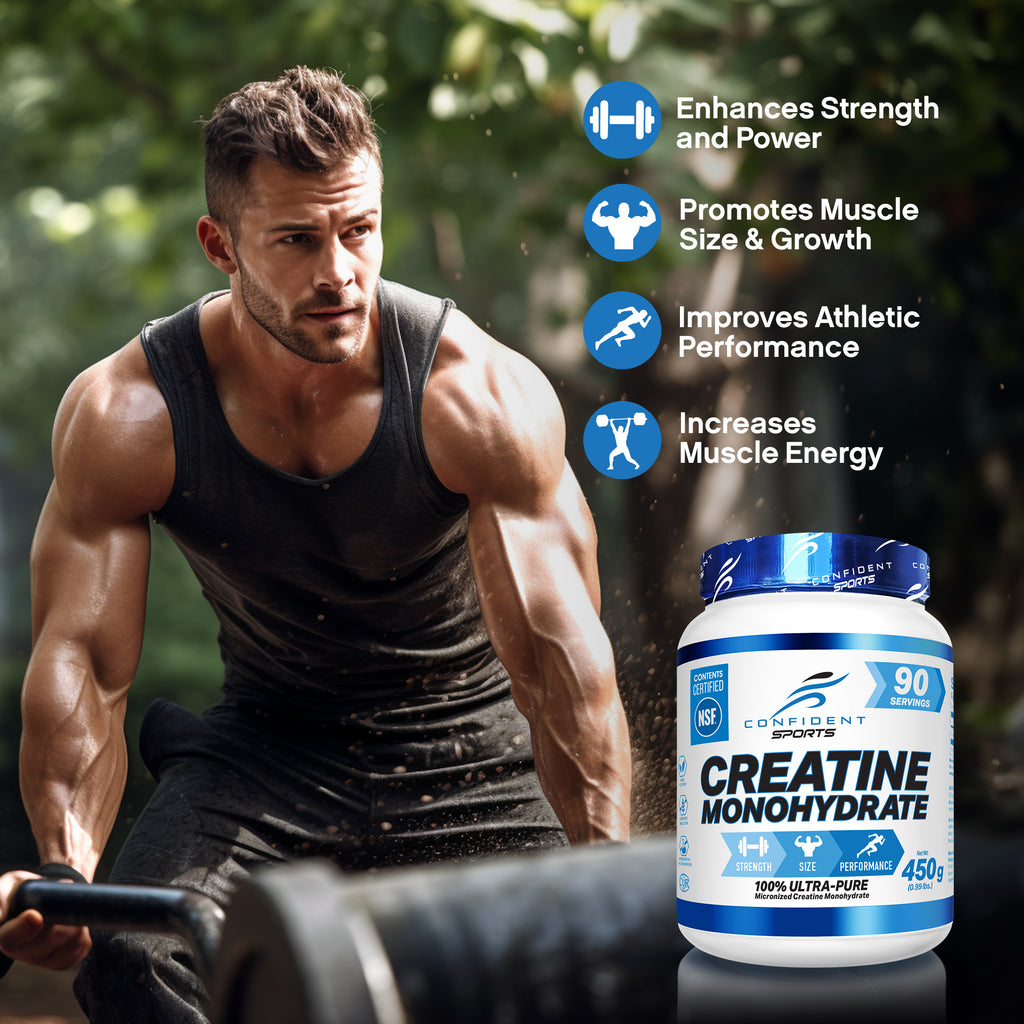The Definitive Guide to Creatine Monohydrate
The Definitive Guide to Creatine Monohydrate
Blog Article
Excitement About Creatine Monohydrate
Table of ContentsThe Facts About Creatine Monohydrate UncoveredAll About Creatine Monohydrate6 Simple Techniques For Creatine Monohydrate
The authors acknowledge a threat of prejudice with the research study designs due to a need for more quality over randomization with nearly all research studies consisted of. Only 3 of the nineteen research studies thoroughly detailed the assessment of VO2 max.
This varies from professional athlete to athlete. If weight gain with fluid retention is a problem, quit taking creatine 1-2 weeks prior to competing to offset liquid retention while retaining increased creatine stores. Some people experience stomach pain when taking creatine, such as bloating, cramping, or diarrhea. It is very important to note that not everyone experiences stomach distress while taking creatine, and it can typically be handled by adjusting the dosage or taking it with dishes, as laid out by the International Culture of Sports Nourishment.
It's recommended to use it in powder type. Problems concerning the lasting effects of creatine monohydrate supplementation on renal (kidney) feature have actually been raised. Studies done by the International Culture of Sports Nutrition and Sports Medication program that short-term and long-term use creatine monohydrate within suggested dosages doesn't risk kidney function in healthy and balanced individuals.
How Creatine Monohydrate can Save You Time, Stress, and Money.
None of the studies examined triathletes. The damaging results reported in the research studies related to weight gain. As stated, the majority of the studies utilized a higher-dose loading procedure (20g+/ day) in a brief period that might be balanced out and avoided via a lower dosage (such as 5g/day) for an extended duration.
:max_bytes(150000):strip_icc()/Health-BenefitsofCreatine-Vertical-V5-10dbc94af7324b37aae2ab35c98b87a8.jpg)
Let's look at the primary advantages of creatine monohydrate. There is solid, dependable research study revealing that creatine improves health and wellness.
et al. (2008, July). Putting to relax the misconception of creatine supplementation leading to muscle mass cramps and dehydration. Retrieved from https://pubmed.ncbi.nlm.nih.gov/18184753/Eventbrite Report.(2014). Endurance Sports Participant Study. Gotten from https://eventbrite-s3.s3.amazonaws.com/marketing/britepapers/Endurance_Report_Survey.pdf!.?.!Fernndez-Landa, J. et al.(2023, May). Results of Creatine Monohydrate on Stamina Efficiency in an Educated Populace: A Systematic Review and Meta-analysis. Dear Reader: Creatine is an organic compound that the body depends on for a continual supply of power to the muscular tissues. It is specifically valuable during short bursts of intense, anaerobic task, such as when raising weights or running a brief range. Creatine is manufactured by the body from a trio of amino acids, mainly by the liver. The compound also is available from dietary resources, mostly red meat, fish and shellfish and hen (Creatine Monohydrate). The bulk of creatine is kept in the skeletal muscle mass in a form known
The Definitive Guide for Creatine Monohydrate
as phosphocreatine, or creatine phosphate. A percentage, less than 5%, is discovered in the tissues of the visit this website brain and testes. Creatine aids in the production of adenosine triphosphate, or ATP. Scientists have actually found that when somebody takes creatine supplements while participated in a program of resistance training, such as weightlifting, it can help to develop lean body mass. Added researches into the potential health advantages of creatine supplements recommend it might enhance specific blood lipid levels, help in maintaining skin flexible and healthy, aid in some symptoms of Parkinson's illness and speed recovery from muscular tissue overuse and tiredness. A healthy and balanced person with a well balanced diet plan that includes red meat, hen and seafood will certainly obtain an adequate supply of creatine. Nonetheless, research reveals that supplements can be valuable in making athletic gains. Some top article studies have actually discovered that using a creatine supplement can assist develop muscle mass and boost toughness. When taken in huge quantities, some individuals do report experiencing stomach issues. Just like any kind of dietary supplement, it is necessary to talk with your health and wellness care service provider prior to adding creatine to your day-to-day routine. There are several kinds of creatine supplements, which come in a vast array of does. Your doctor will assist you assess your objectives and can direct you in selecting the appropriate supplement for your requirements.(Send your inquiries to [email safeguarded], or write: Ask the Medical professionals, c/o UCLA Wellness Sciences Media Relations, 10960 Wilshire Blvd., Collection 1955, Los Angeles, CA, 90024. Millions of people take multivitamins daily, despite mountains of proof showing they do not boost health significantly. A lot of would be far better off taking look at this site creatine monohydrate. Yes, creatine is a health supplement. Most individuals, around 69%, are actually creatine deficient. Even if they never ever lifted a barbell, they 'd still benefit from creatine supplements.
Report this page